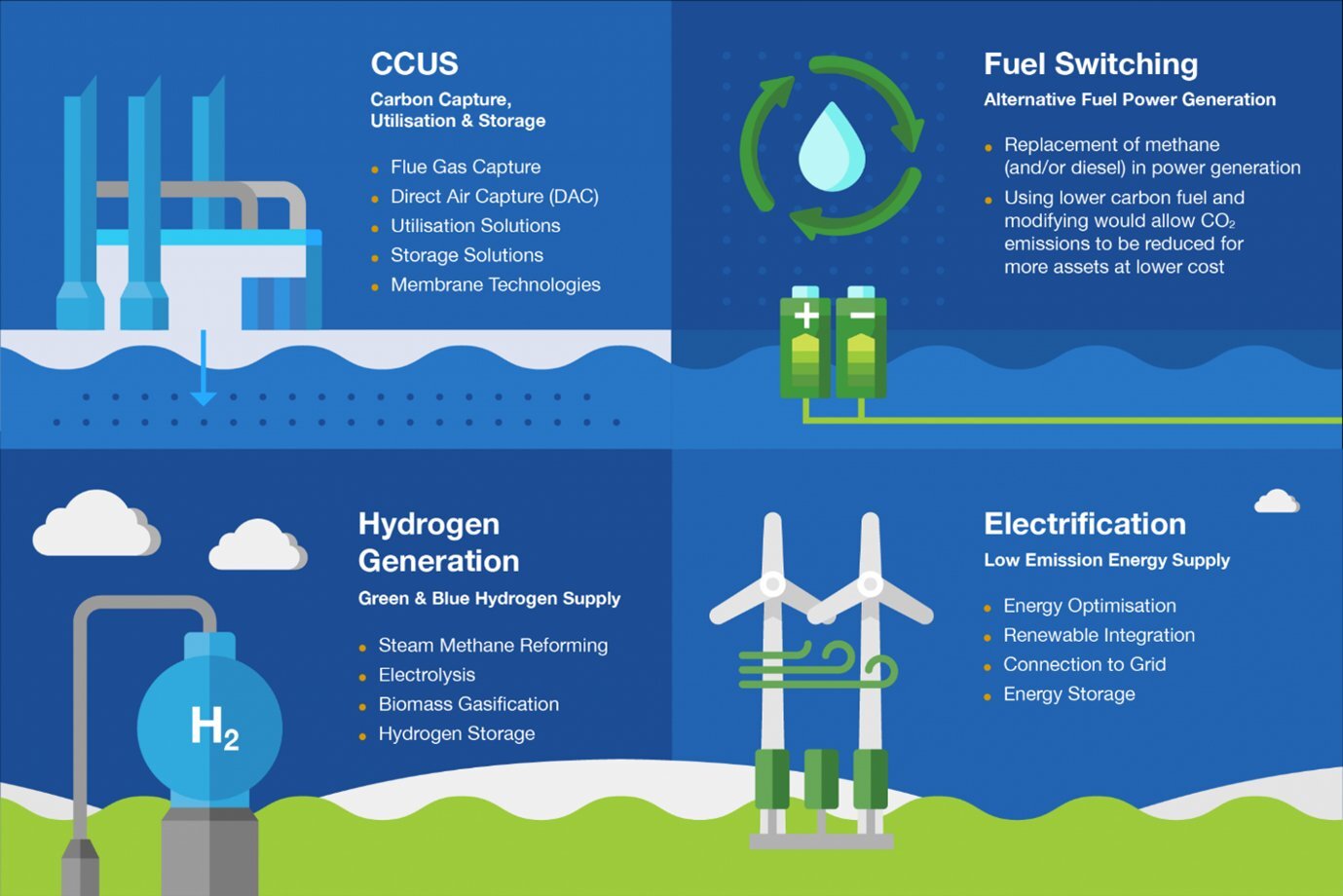At present, the manufacturing sector makes up around 10% of the UK’s total greenhouse gas emissions. This means that manufacturers must take immediate action to curb these emissions and lower their carbon footprint.
At CFP Energy, we provide tailored sustainable energy solutions to help companies in the manufacturing industry decarbonise, using measurable, credible strategies. From renewable energy procurement to voluntary carbon, we can help.
Contact our carbon specialists here to start your Net Zero journey today.
Defining Net Zero Manufacturing
Net Zero in manufacturing is all about the equilibrium of emissions produced by the operations and carbon offsetting or reductions made elsewhere.
By investing in clean energy, either produced on-site or purchased from providers, you can attain the Net Zero target.
One of the other practical ways is to join companies dealing with verified offset projects, such as tree planting and cookstove initiatives.
Ensuring supply chain efficiency by auditing logistic networks and transport hubs - e.g., by using biofuels and feedstocks in fleets and other vehicles - can also help in achieving Net Zero goals.
Key Decarbonisation Strategies
Energy Efficiency Optimisation
Upgrading tools like sewing machines, lathes, and other types of manufacturing equipment is an established way for manufacturers to reduce energy usage by 15–30%.
Focusing on locating energy savings within the building itself, like LED lighting, aerogel insulation, or the replacement of gas boilers with heat pumps, is also a tested route to enhance energy efficiency.
Manufacturers, through these efforts, should aim to achieve an Energy Performance Certificate (EPC) rating of A, verifying a high level of energy efficiency that can be showcased in Environmental, Social, and Governance (ESG) Reports.
Switching to clean energy
Defined by the Greenhouse Gas Protocol (GHG Protocol) as “indirect greenhouse gas emissions from the consumption of purchased electricity “, Scope 2 emissions are another area that manufacturers should target for meaningful carbon emissions reductions.
In practice, Scope 2 emissions can be tackled in two main ways – through Power Purchase Agreements (PPAs) that allow businesses to purchase renewables on a long-term contract basis, or via Renewable Energy Certificates (RECs), which represent the environmental benefits of renewables decoupled from the renewables themselves.
Process and Materials
Where possible, manufacturers should replace high carbon materials, such as plastics, for low carbon equivalents, based on bioplastics, cellulose, or other compostable alternatives. To ensure full end-to-end sustainability of a product, manufacturers would also implement a Life Cycle Assessment (LCA)
The lifecycle of a product covers:
- Raw Materials
- Processing
- Transport
- Retail
- Waste
A life cycle analysis, with its primary function of measuring the entire environmental impact of a product or service - from its initial stage to the end of life - provides an established means of monitoring and measuring a product’s carbon footprint.
In other words, a typical LCA calculates not only the environmental impacts of the individual materials used but also the energy consumed in production, the fuel burned during transportation, and the ecological debts left at the end of life.
Circular Economy Models
Circular production strategies reduce material consumption and waste through reuse, remanufacturing, and design optimisation.
Products can be designed not just to serve their immediate use, but also for easy disassembly and component recovery at their end of life.
Extending product life spans through refurbishment and modular design can also reduce associated emissions, while material reuse programmes can help cut waste and reduce reliance on virgin inputs and improve resource efficiency.

Net Zero Manufacturing: Summing Up
UK manufacturers are already integrating Net Zero strategies in response to regulation, investor expectations and supply chain underperformance.
Common implementation areas include equipment and process upgrades, clean energy procurement, and supplier engagement programmes. For energy-intensive operations, transformation may involve core process redesigns, while a full life-cycle analysis (LCA) will almost certainly be essential to ensure transport, waste management, and raw material processing are all carried out as efficiently and sustainably as possible.
How CFP Energy Supports Manufacturers
CFP Energy provides manufacturing Net Zero help through technical services and strategic planning.
From targeting embodied carbon to helping you reduce your Scope 2 emissions, we can assist you at every stage of your decarbonisation - from procurement and supply to carbon compliance and stakeholder reporting.
Contact our team today to see how you can start reducing your GHG emissions.